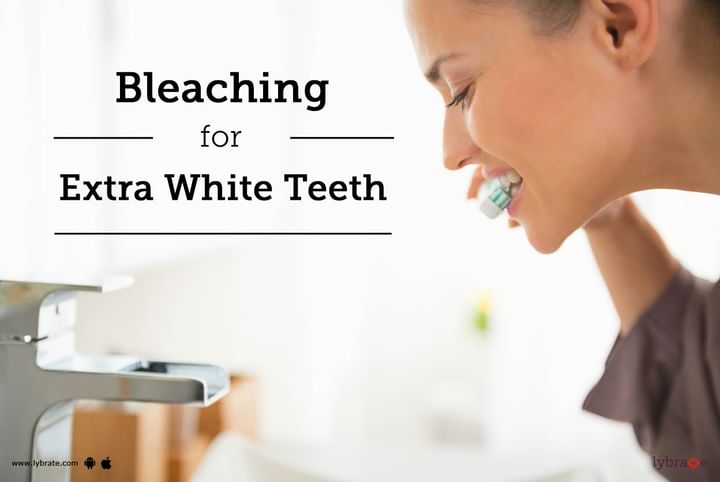Bleaching for Extra White Teeth
The smile is the first thing we notice about a person, and more than anything else, it reveals the teeth first. We all yearn for that set of perfectly aligned teeth that are pearly white in color. However, this is not a reality in all people.
Due to various reasons, the teeth are not always bright and white. In some cases, the high fluoride content in the water can lead to fluorosis, which causes irregular patches on the teeth. Chewing tobacco and smoking are another reason for teeth discoloration, ranging from yellow to brown to black. The most inevitable of all reasons is ageing, where they naturally change to a darker shade of yellow. However, dental technology has also improved to come up with various solutions, so that the dream for that set of pearly whites can be made a reality.
Bleaching is by far the most commonly used method for teeth whitening. The tooth has an outer layer called enamel, a next layer called dentin, and a final inner layer called the pulp. The enamel contains organic particles that give the tooth its color, and the bleach material attacks these organic particles and thereby removes the stains.
It is always advisable to use tooth bleaching under the supervision of a dentist. A thorough examination and diagnosis is required before deciding on one of the two modes of bleaching.
- In-office bleaching: This involves use of whitening gels that are not available over the counter. The gel is applied on the discolored portions of the teeth to leave a whiter tooth behind after the stipulated time.
- Home bleaching: In cases where more regular application is desired, the patient is given a kit which has customized trays and the whitening gel. The patient is educated on a schedule including how and when to apply the gel and instructions for this application.
In addition, for minor discolorations, there are other options as below:
- Whitening strips: These strips are similar to adhesive bandage and contain the bleaching agent. They are applied onto the tooth and left for usually about 30 minutes to take effect.
- Brush-on whitening: These gels are applied directly on the tooth and left for a while or overnight if required.
- Whitening chewing gum: For the chewing gum lovers, this could be an option. These chewing gums are similar to any chewing gum but include bleaching agents.
Side effects: Sensitivity and gum irritation are the two common side effects of bleaching. This could be either from the chemical or the trays that are used. The need to repeat the treatment again is another shortcoming. Repeated visits to the dentist may be needed once or twice a year to maintain the pearly white smile!



+1.svg)
